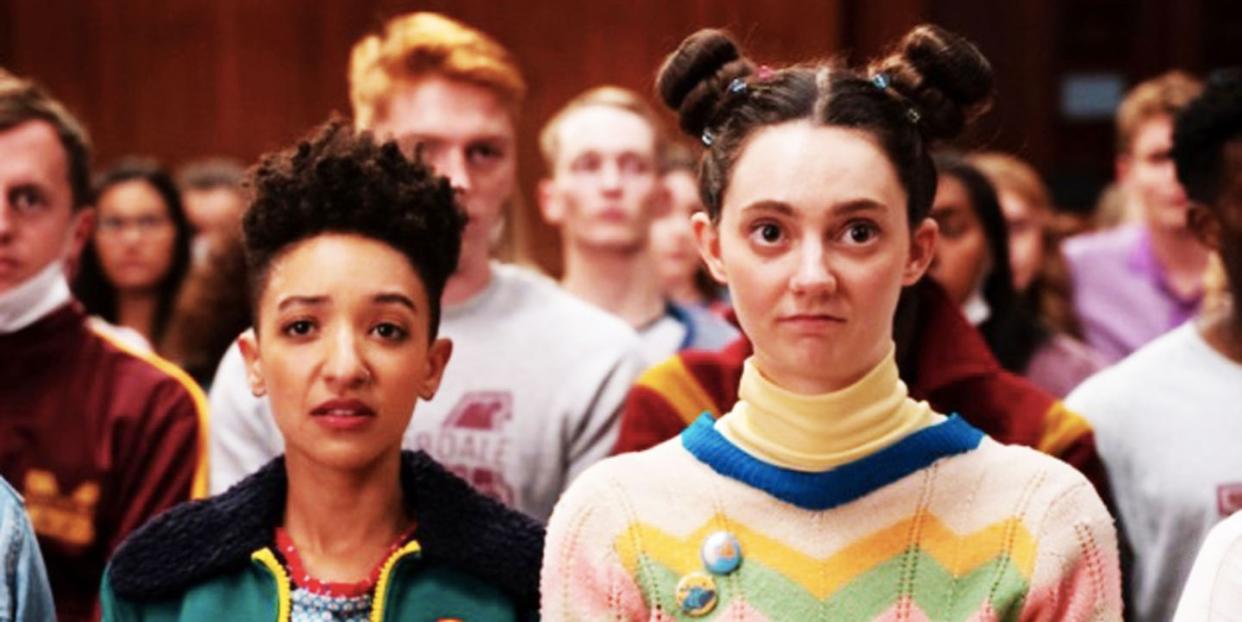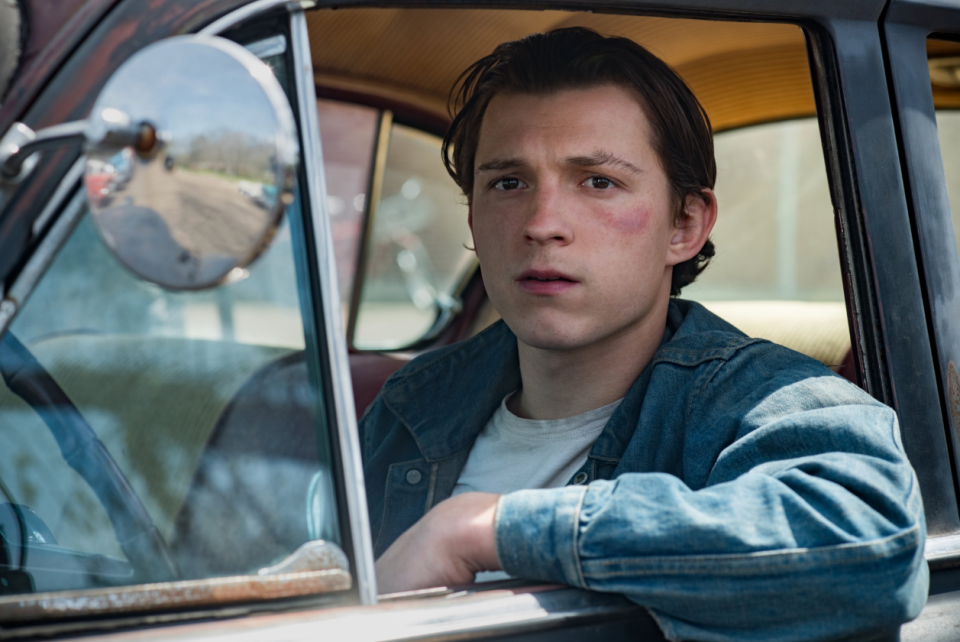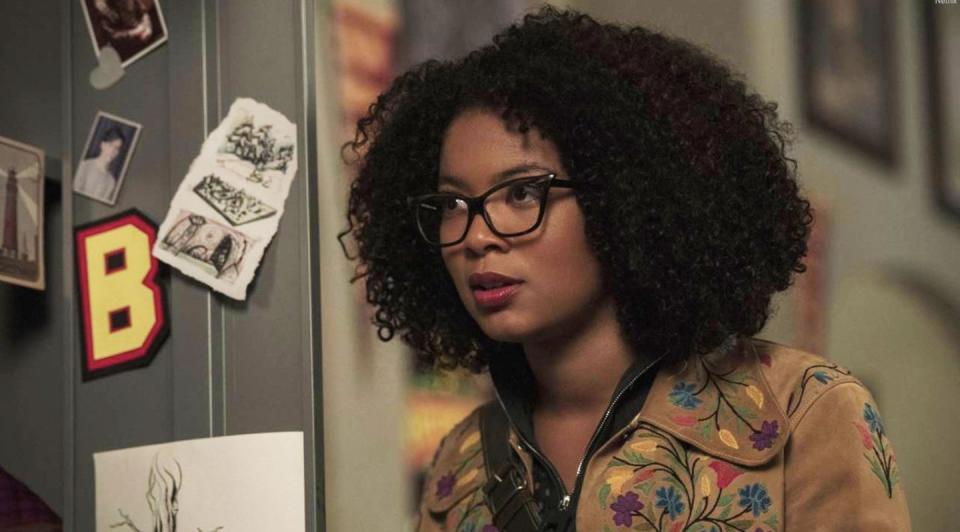Netflix's new feature may actually make its biggest problem worse

Netflix wants to make your life easier.
The streaming giant is currently testing "Shuffle Play", a feature which does exactly what it says on the tin, choosing content for you so you don't have to.
Netflix is testing a ‘Shuffle’ button for indecisive viewers. pic.twitter.com/PyHcdZNAts
— Pop Crave (@PopCrave) August 19, 2020
The platform boasts a hefty catalogue, which is why the 'popular on Netflix', 'top ten' and 'because you watched' tools, among others, were introduced. The company wants you to make a choice, as quickly as possible, because the more you watch, the more likely you are to stay subscribed. It's been designed to keep you there for long stretches, jumping from title to title, consuming as many of its TV shows and movies as it can tempt you with.
It's just one of many experiments that Netflix is running to ensure that its subscribers enjoy the best possible viewing experience, because that means they'll stay – and they'll bring their family and friends, too.

The shuffle experiment, which is underway worldwide on connected TV devices, bases its choices on what you've watched previously, titles in genres that you've browsed, and content that you have saved. "Random", as it's being labelled by multiple publications, isn't entirely accurate. Instead, it's the work of that pesky algorithm, which has taken some flak in recent years.
In 2018, it was criticised when people started noticing that the images used to advertise titles on the platform were seemingly tailored to ethnicity.
Producer and podcaster Stacia Brown cited Like Father, a film whose cast is predominantly white, which was presented to her as if it centred Black characters.
"This film stars Kristen Bell/Kelsey Grammer and these actors had maaaaybe a 10 cumulative minutes of screen time," she said. "20 lines between them, tops."
Other Black @netflix users: does your queue do this? Generate posters with the Black cast members on them to try to compel you to watch? This film stars Kristen Bell/Kelsey Grammer and these actors had maaaaybe a 10 cumulative minutes of screen time. 20 lines between them, tops. pic.twitter.com/Sj7rD8wfOS
— stacia l. brown (@slb79) October 18, 2018
"It's weird to try to pass a film off as having a Black principal cast (by creating a movie poster-like as featuring just the Black people) when it's a white movie," she added.
The Netflix algorithm has also been lambasted for locking individual viewers into their own narrow prisms, particularly from creatives who felt that their cancelled projects weren't sufficiently promoted on the platform.
It operates by serving people yet more of the same, rather than daring to tempt them with something new. And that's exactly what we're getting here.
'Echo chamber' is a term that has taken on a new relevance as of late, mostly in relation to politics, but also with the culture that we gravitate towards and spend our time with.
Shuffle is doing nothing to address that, instead offering up a direct continuation of what we've already got, but in a slightly niftier format. While there's every chance you could stumble across something utterly brilliant that you fall head over heels in love with, there's a significant chance that you won't.
It doesn't matter how substandard the selected film or show is. If it ticks the boxes that you didn't strictly know you were ticking every time you pressed play, long before the algorithm began to attract a more critical eye, Shuffle will deem it a viable option.

And there certainly won't be the joy of the unexpected – telly that falls outside the parameters of what the algorithm thinks you want. This isn't to say that the technology is a hindrance, rather than a help. Like everything, it has its place in the world. But if you've ever taken a chance on a film that doesn't align with your typical preferences, only to be met with a new appreciation for a genre or director you previously swerved, it only serves to cement the importance of our autonomy.
Netflix's algorithm is adept at burying content, which is why someone could recommend something to you that has never once appeared on your individual, unique interface that you helped sculpt, albeit unknowingly. If Shuffle is dipping into a pool of work tailored specifically towards you, that limitation becomes even greater.
Plus, this is a feature that's supposed to act as a time-saving device – saving us the endless agonies of choice – but it could actually end up doing the opposite. Fatigue is something that's talked about a lot in relation to Netflix's mammoth selection of content. We've all felt overwhelmed by the seemingly infinite conveyor belt of choice, even with measures in place to supposedly help make decision-making swifter.
But this doesn't streamline Netflix's content library, and like Tinder or Hinge, the temptation that there might be something better if you choose to move onto the next option is always there.

In a world which continues to move towards automation, nothing is immune, and this is just the latest in a long line of technological advancements promising an easier life.
But pressing Shuffle feels less accommodating, or even thrilling, and somewhat aimless.
Streaming platforms can't ever recreate the Blockbuster-store magic, casting your eye over the shelves upon shelves of carefully curated films, tracing your finger along the plastic spines, hosting a conference in front of the 'New Releases' stand as you and your mates whittle down the final sleepover contenders. But we still have the dignity of choice, which not only lets us take control, but opens up the floor to a wealth of voices and narratives.
Telly and films should never feel like a chore, and while we'll gladly relinquish the laundry to artificial intelligence, choosing our viewing is a job we're happy to do.
Digital Spy has launched its first-ever digital magazine with exclusive features, interviews, and videos. Access this edition with a 1-month free trial, only on Apple News+.
Interested in Digital Spy's weekly newsletter? Sign up to get it sent straight to your inbox.
You Might Also Like

